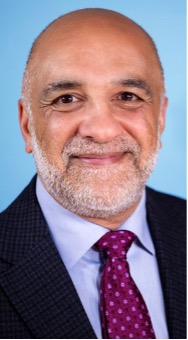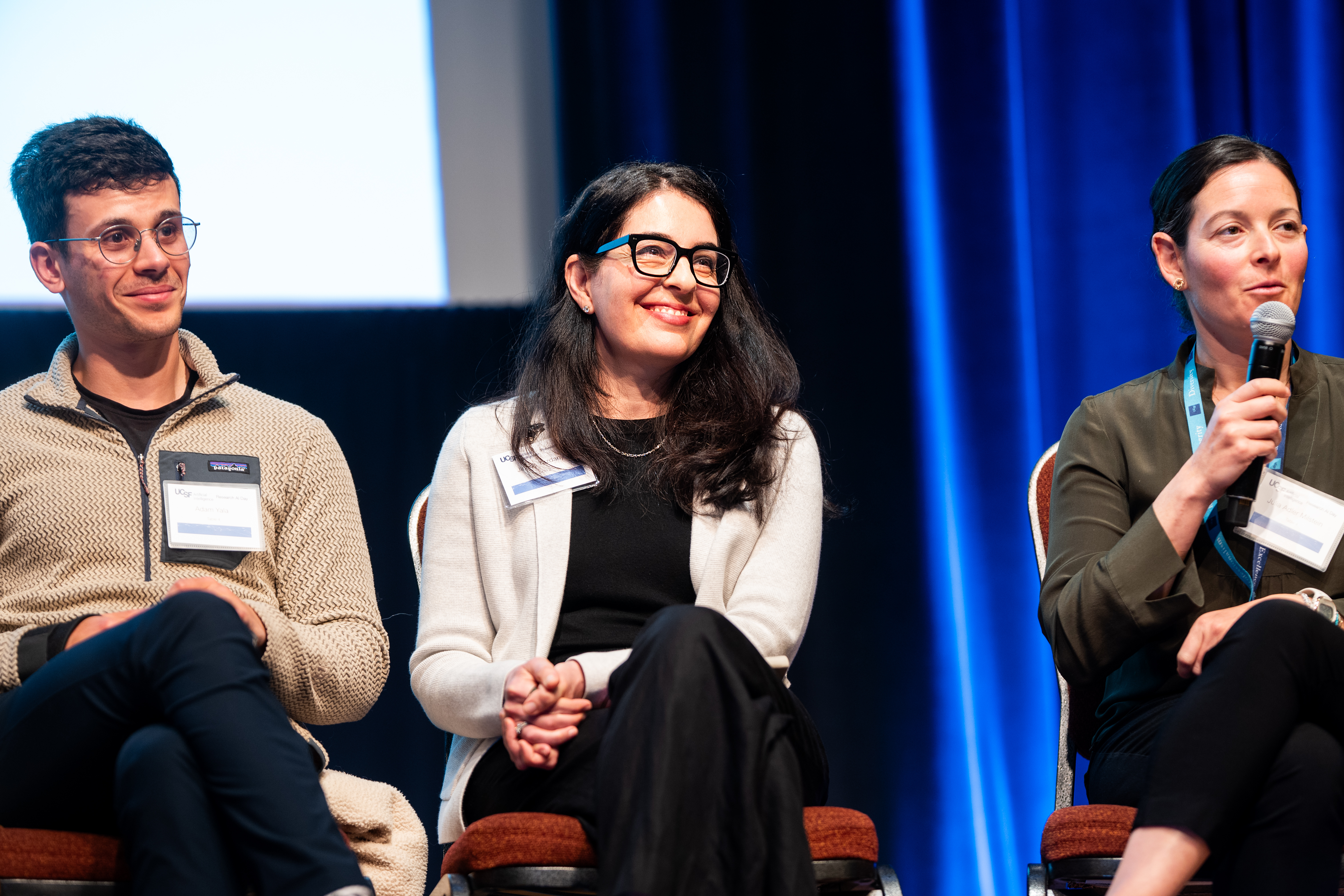Overview
Please join us for the second annual UCSF Research AI Day on Wednesday, March 11th, 2026, from 9 a.m.-5 p.m at the Mission Bay Conference Center
Like last year, we will have:
- Speakers from throughout the UCSF research enterprise
- An inspiring keynote from Micky Tripathi, PhD, the Mayo Clinic Chief Artificial Intelligence Implementation Officer (CAIO)
- Poster session to end the day, highlighting inspirational work from our investigators
New this year:
- Deep dives into a wide range of UCSF resources
- Panel on partnering with industry
We look forward to seeing you.
Call for posters
Call for Posters: Showcase Your Research
We invite the UCSF and UCB research community to share innovative research that demonstrates the transformative potential of AI in the biomedical and health sciences. We are especially excited to hear from early-career researchers, students, and trainees who are pushing the boundaries of what AI can achieve in this space.
The Poster Session will take place in the afternoon, where we’ll celebrate your work and the future of AI in health. This is your chance to highlight your contribution to this game-changing field and connect with fellow researchers across disciplines.
We encourage you to print posters that are no wider than 48" (e.g. If horizontal/landscape configuration, we recommend 48" wide x 36" long).
Submit Your Poster Abstract
Please include the following:
- Title of Poster
- 1-2 Paragraph Abstract
- List of Authors and Affiliations
- Keywords
Keynote Speaker Micky Tripathi, PhD
Micky Tripathi, Ph.D., is Mayo Clinic’s chief artificial intelligence implementation officer. With a focus on oversight and ongoing monitoring of artificial intelligence (AI) across the Mayo Clinic enterprise, Dr. Tripathi drives AI adoption and establishes streamlined pathways to integrate safe and effective AI into the clinical practice. With over three decades of healthcare leadership experience, Dr. Tripathi’s expertise spans public and private sectors in strategy, product development and operations with a proven track record in leading large-scale health information technology (IT) projects and fostering collaborations. He served as a top federal official at the U.S. Department of Health and Human Services (HHS), where he oversaw clinical data standards, health IT policies, interoperability and health AI regulations. His work established nationwide data and interoperability standards across all HHS divisions and more than 500 electronic health record (EHR) products, impacting 97% of hospitals and 78% of physician offices across the nation. As the HHS’s chief AI officer, he developed AI transparency and risk management regulations for more than 900 certified EHR developers. He also vetted and approved all AI applications.
Before joining HHS, Dr. Tripathi served as chief alliance officer at Arcadia. In that role, he was responsible for developing and executing inorganic growth strategies ranging from enterprise partnerships to mergers and acquisitions. Further, he served as the president and CEO of Massachusetts eHealth Collaborative, providing health IT and data analytics services to healthcare customers across the U.S.
Dr. Tripathi received his undergraduate studies at Vassar College, earned his master’s degree from Harvard University and completed his Doctor of Philosophy degree from Massachusetts Institute of Technology. Recognized for his visionary yet practical leadership, Dr. Tripathi has served on numerous boards, and he excels in managing complex initiatives at the intersection of health, technology, business and regulation.
Highlights from last year
Organizing Committee
UCSF Academic Research Services
UCSF Bakar Institute for Computational Health Science
UCSF Center for Intelligent Imaging (ci2)
UCSF Clinical & Translational Science Institute
UCSF Division of Clinical Informatics and Digital Transformation, Department of Medicine
UCSF UC Berkeley Joint Program Computational Precision Health
UCSF Department of Epidemiology and Biostatistics
UCSF Quantitative Biosciences Institute
UCSF School of Medicine Dean's Office Strategic Programs and Digital Innovation


